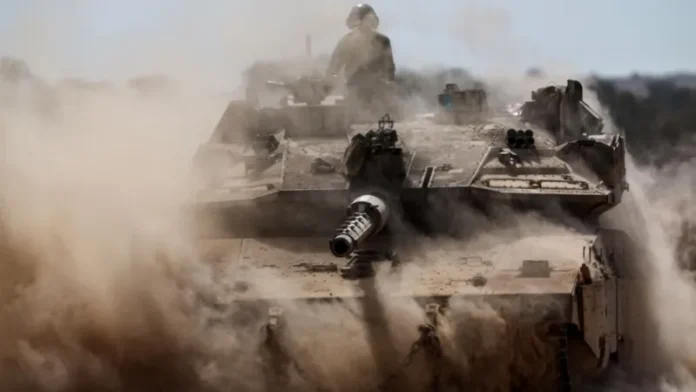The Israeli military has announced plans to mobilise approximately 60,000 reservists ahead of a major ground offensive aimed at capturing and occupying all of Gaza City. The move comes amid the collapse of indirect ceasefire talks with Hamas and rising international concern about the humanitarian toll of a new escalation.
A senior military official said the reservists would begin reporting for duty in September, though the bulk of the operation would be carried out by active-duty personnel.
Troops are already operating in the Zeitoun and Jabalia districts as part of the build-up to the offensive. The plan, formally approved by Defence Minister Israel Katz on Tuesday, will be presented to Israel’s security cabinet later this week for final confirmation.
The government’s objective, officials said, is the complete conquest of the Gaza Strip following nearly two years of conflict with Hamas. Gaza City, the enclave’s largest urban centre, has been a stronghold of Hamas fighters and infrastructure throughout the war.
As part of the preparations, hundreds of thousands of Palestinians in Gaza City are expected to be ordered to evacuate and head south, where shelters are already overcrowded and resources scarce.
Human rights organisations and the United Nations have warned that the offensive could trigger a “horrific humanitarian impact,” exacerbating mass displacement and worsening conditions for civilians after nearly 22 months of war.
“The consequences for the civilian population would be catastrophic,” a UN humanitarian coordinator said, urging both parties to return to the negotiating table.
International criticism of Israel’s strategy has been mounting. Several of Israel’s closest allies, including European partners, have condemned the planned offensive, stressing the urgent need for a negotiated ceasefire and warning that continued fighting will undermine regional stability.
The mobilisation comes after indirect talks between Israel and Hamas broke down last month. Mediators from Qatar, Egypt, and the United States have since proposed a new framework: a 60-day truce and the release of around half of the 50 hostages believed to remain in Gaza. Hamas announced on Monday it had accepted the proposal.
Israel, however, has yet to formally respond. Officials in Jerusalem stated on Tuesday that they would no longer accept a partial deal and would only agree to a comprehensive arrangement involving the release of all hostages. Military assessments suggest that only 20 of the hostages are still alive.
Despite the international pressure, Israeli leaders have signalled their determination to move ahead. “We cannot allow Hamas to regroup,” one military spokesman said. “This operation is necessary to ensure the security of Israel and the return of our citizens.”
With tens of thousands of soldiers set to join the fight and evacuation orders looming, the coming weeks may prove decisive for the future of Gaza — and for a war that has already reshaped the political and humanitarian landscape of the region.
This article was created using automation technology and was thoroughly edited and fact-checked by one of our editorial staff members

